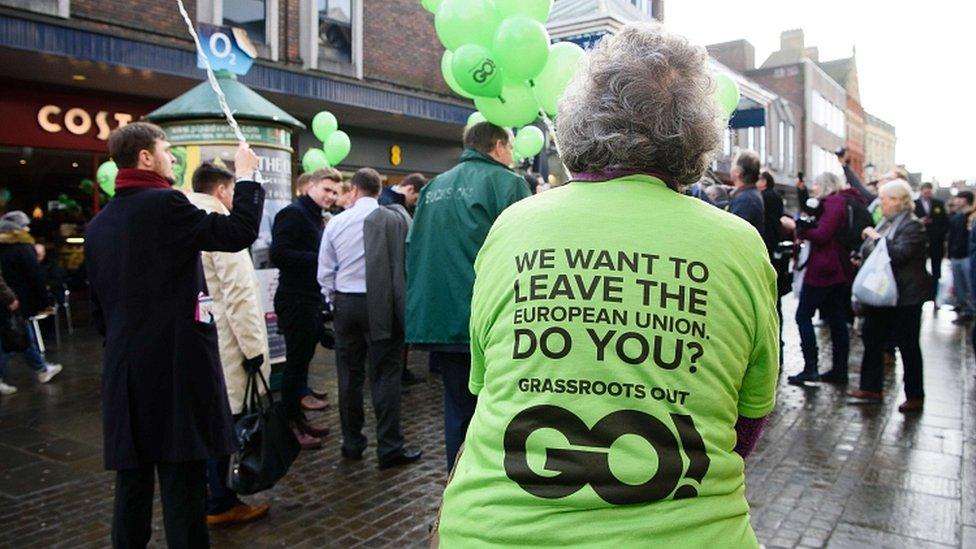EU referendum: UK renegotiation would be 'legally binding'
- Published
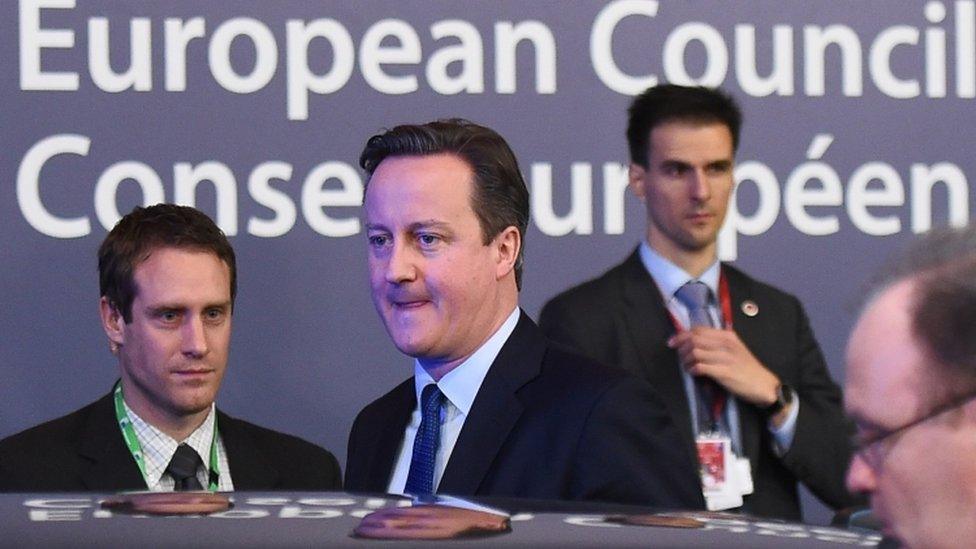
Any agreement on changes to the UK's membership of the EU would be "legally binding", papers released ahead of next week's crunch summit have indicated.
David Cameron hopes to get agreement for his proposed renegotiation at a meeting of EU leaders on 18 February, paving the way for a future referendum.
Draft conclusions of the summit, issued in advance, state any deal would be "fully compatible with EU treaties".
No more detail is given about the final agreement still being negotiated.
The two-day meeting is a crucial moment in the debate over the UK's future in the EU. Mr Cameron requires the approval of all 28 EU members for a draft package of reforms to the UK's membership outlined earlier this month.
If he secures it, he is expected to proceed with an in-out referendum on the UK's membership by the end of June.
'Intelligent compromise'
However, a former president of the European Commission has cast doubts on the likely impact of plans to limit payments of in-works benefits to EU migrants, which Mr Cameron has claimed is one of his main negotiating achievements and will affect the numbers coming to the UK.
Jose Manuel Barroso told the BBC's Newsnight programme that a proposed four-year emergency brake on benefits was a "creative and intelligent compromise" that upheld the central principle of freedom of movement and could win the backing of all member states.
But asked whether it would put anyone off from coming to the UK, he replied: "No, frankly not", adding that levels of immigration would be dependent on future labour market conditions.
"People who want to go to Britain, if the basic rights of the people are ensured, they will be willing to go but of course with slightly different conditions," he said.

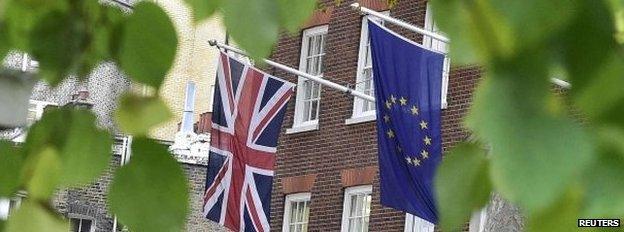
Further reading on the UK's EU referendum
Guide: All you need to know about the referendum
EU renegotiation: Did Cameron get what he wanted?
Referendum timeline: What will happen when?
The view from Europe: What's in it for the others?

The BBC's Brussels correspondent Ben Wright said draft conclusions are always circulated to member states a couple of weeks before EU summits and usually leaked to the media.
Drafts, he pointed out, often change significantly before the final agreed text.
The documents issued by the European Council on Tuesday briefly restate the broad areas of negotiation set out last week - including proposed limits on the payments of migrants' benefits, new powers for national parliaments and safeguards for countries outside the eurozone.
'Bring it on'
They also state that if EU leaders endorse the agreement, the new arrangements would become effective on the date the UK government informed the Council it was staying in the EU, were that to be the outcome of the referendum.
Amid continuing speculation about the timing of the referendum, one Conservative Eurosceptic MP has urged Mr Cameron to "bring it on".
Speaking during a Commons debate on the issue, Sir Edward Leigh said those seeking a British exit from the EU know their arguments and are confident of winning.
"We say to the prime minister: 'bring it on'. No delay, don't look worried, bring it on and we can have a proper debate and we can win this."
No date has yet been announced for the referendum although Downing Street is reported to favour staging the poll on 23 June.
The SNP, Democratic Unionist Party and Sinn Fein all object to this, saying it would be too close to elections in Scotland, Wales and Northern Ireland on 5 May, while the first minister of Wales, Carwyn Jones, has also called for it to be deferred until the autumn.
'Campaign sham'
Former Scottish first minister Alex Salmond accused the prime minister of "gambling this country's entire European future on his sham negotiation and this shame of a campaign".
He described the lead up to the referendum as "thoroughly depressing", attacking Mr Cameron's suggestion that leaving the EU could lead to migrant camps like the "Jungle" in Calais being set up in the UK.
"The truth is, of course, it doesn't matter," he said. "It would take at least five years to withdraw from the European treaties. By then we could have 10 times the number of refugees or indeed, we could have none at all.
"No one knows how it would affect the bilateral arrangements between Britain and France. It is pointless, pathetic, puerile debate - typical of what looks like it is going to be, a depressing campaign - the political equivalent, I would suggest, of a no score draw."
Immigration Minister James Brokenshire said political figures in France indicated they would like to see an end to "juxtaposed" border controls in Calais, which allow UK officials to check passports on French soil.
He told the Commons Home Affairs committee: "That is certainly not our view. The French government have indicated that is not their view. But the situation could change. That sense of certainty is what the prime minister is pointing to and the impact if the juxtaposed controls were changed."
- Published9 February 2016
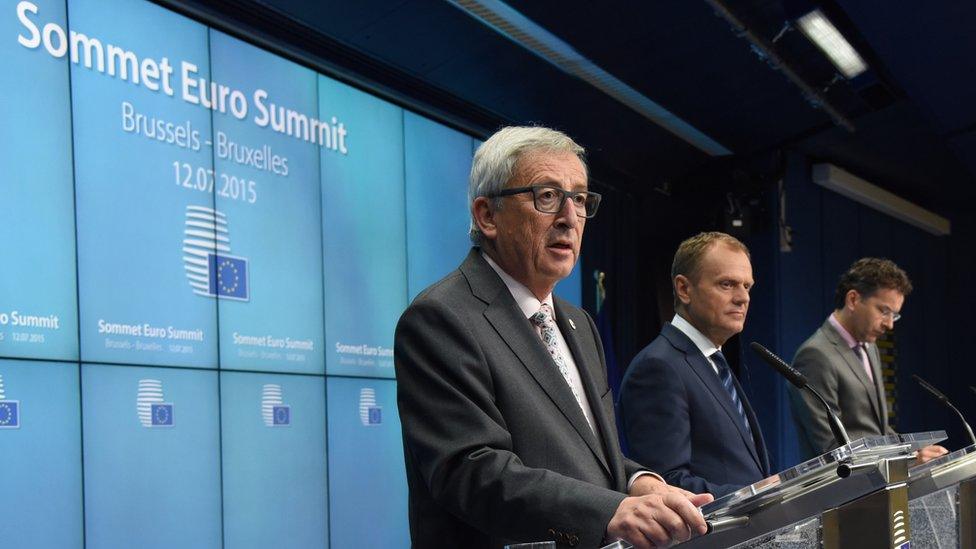
- Published8 February 2016
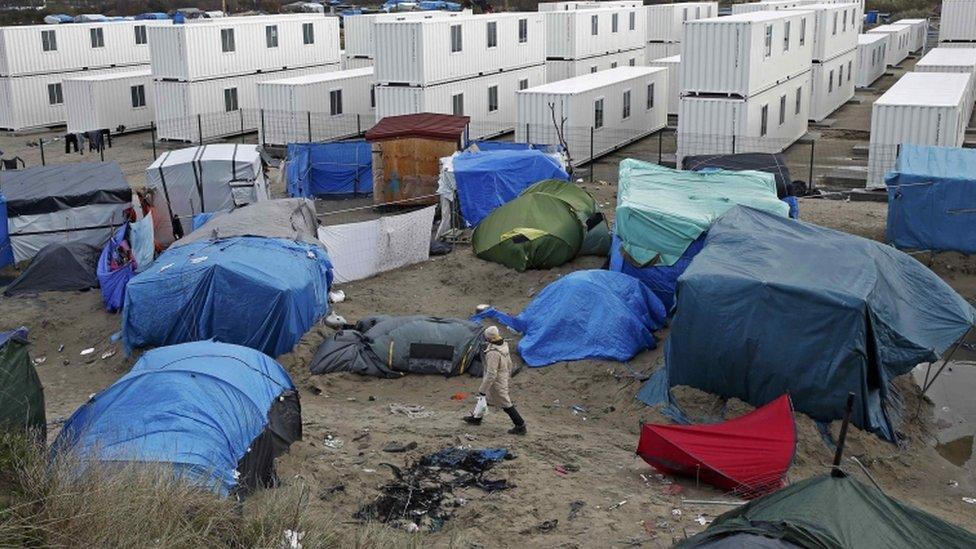
- Published30 December 2020

- Published8 February 2016
